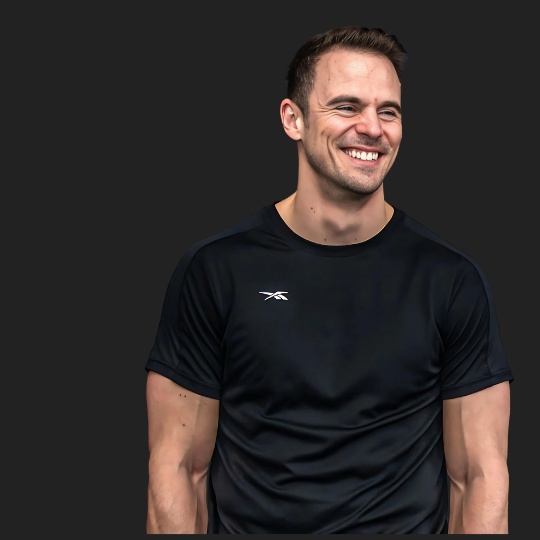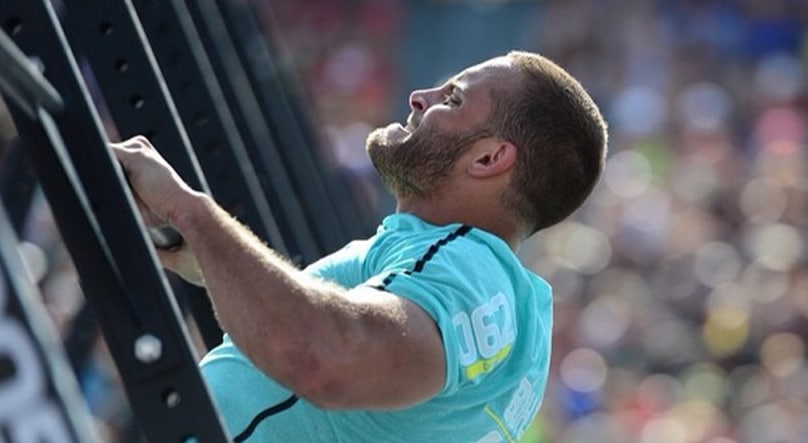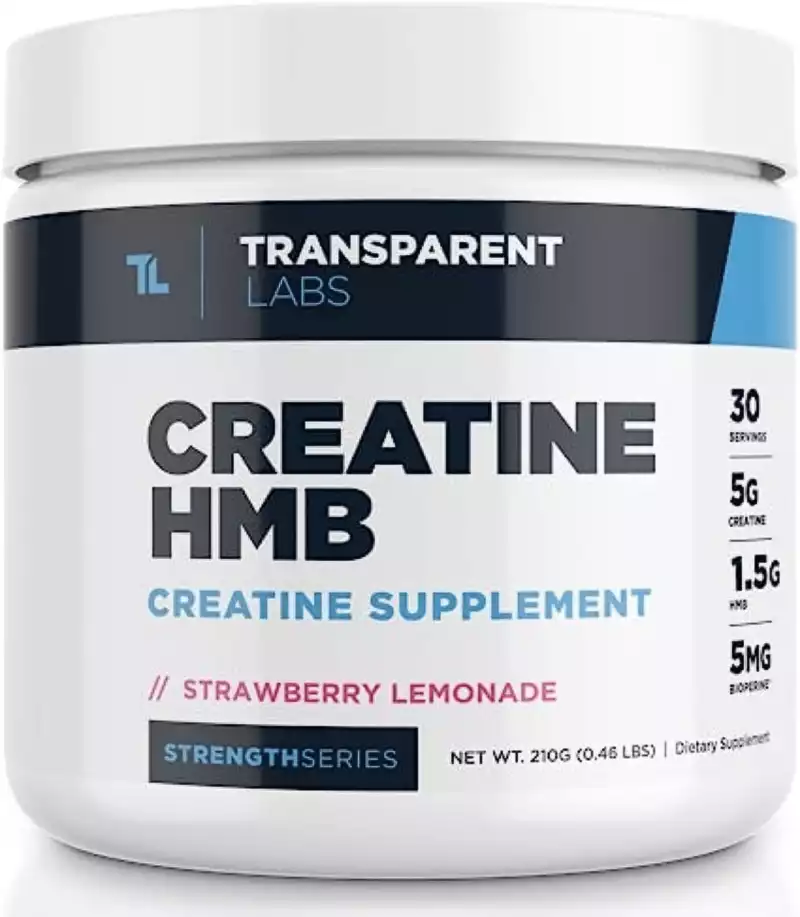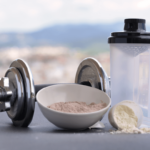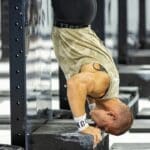You may have missed it, but last week, sandwiched between the event announcements and build-up for the 2015 Games, CrossFit HQ released an article titled, ‘Sanctions Handed Out For Drug Policy Violations’. Within it, CrossFit HQ describes how they have implemented ‘an aggressive drug-testing program’ that tests athletes throughout the year, as well as at major events.
“No individual athlete can advance to the CrossFit Games in Carson, California, without being tested at least once.”
They have also announced that in 2015, four athletes have been sanctioned as a result of failed drug tests. Steve Pinkerton, a three-time Regional competitor, provided a urine sample at the Atlantic Regional on May 17, 2015, that tested positive for the anti-estrogens Anastrozole and Letrozole, as well as 19-norandrosterone, a metabolite of the anabolic substance Nandrolone. Anti-estrogens are substances that block the production and/or effects of estrogen in the body, which means that there is an increase in testosterone production (testosterone is an important hormone that works to build muscle). Nandrolone is an anabolic steroid. Elia Navarro Garcia, an athlete who competed at the Meridian Regional this year (finishing 10th), provided a urine sample during the competition that tested positive for Oxandrolone, an anabolic agent. Both athletes declined to appeal the results of their tests, and are thus prohibited from competing in any CrossFit sanctioned competition until the 2018 Open.
Two additional athletes were also sanctioned this year after failing out-of-competition testing. According to the article posted on the CrossFit Games site, Ryan Fischer (Southern California) was suspended for one year “when he provided inaccurate information about his whereabouts, failed to cooperate with collection agents from Drug Free Sport, and did not report for his out of season test.” However, Fischer provides a different account of what happened on his Instagram page:
Based on our testing, this is the best creatine for most people. It has the perfect dosage of creatine monohydrate per serving, which has been proven to increase muscle mass.
- Promote strength and muscle gains
- Tested for purity and safety
- Creatine has no known side effects
BoxLife attempted to reach the number that Fischer claims is that of the drug tester, but it is no longer in service. However, it is clear that Fischer contests the statement from CrossFit that he “provided inaccurate information about his whereabouts and failed to cooperate with collection agents from Drug Free Sport.” Nevertheless, Fischer has been suspended for one year.
In a far more publicized case, 2014 Games athlete Richard Bohlken (South Central) was suspended from the 2015 season after testing positive for the banned substance ostarine in April. In athletes, Ostarine has been credited for increased lean mass gains, increased strength and endurance, joint healing abilities and many of the benefits of anabolic steroids. However, in an interview with CrossFit, Bohlken states that he is a victim of cross-contamination, and that he did not knowingly take ostarine as a performance-enhancing drug (PED). Bohlken took to instagram to explain how ostarine ended up in his system:
“As many of you have already heard, on April 7th I tested positive for Ostarine. I am a victim of cross contamination. The supplement manufacturer that produces Fitnessentials Pre and Post products also mixed and distributed Ostarine for a separate entity. This substance was in the factory and mixed prior to the Pre and Post workout I was distributed. The result of this was my supplement being contaminated and testing positive for a banned substance. I want you all to know that I take full responsibility for what I put into my body. This is a very tough lesson for me. I want to make you all aware so the same thing does not happen to you.”
In conversation with Bohlken, BoxLife learned that the 26-year-old paramedic had been taking Fitnessentials protein, pre-workout and post-workout since April 2014, where he qualified for Regionals and then the Games. As a qualifying athlete for the CrossFit Games, Bohlken underwent a drug test—which he passed. Bohlken continued to use those products up until his failed test in April of this year. When asked if he felt that he might have got an advantage from using the supplement, Bohlken said:
“When I found out I failed in April I freaked out and started to search for answers. I called them [Fitnessentials] and they told me that they started to make Ostarine for another entity under Maxout Sports Nutrition in February. So it’s difficult to pinpoint the effects on my body, but I do know this—I didn’t feel right. I didn’t recover well, I questioned myself and the supplements. I felt like they weren’t doing the job for me and I wanted to change my supplementation. But I told myself that it was just the training that was making me feel bad. In hindsight I’m not sure anymore, but I wanted to be loyal to the company because they were friends and they helped me through my CrossFit career.”
Despite FitnEssentials (Bohlken’s sponsor) taking full responsibility for the situation, Bohlken accepted the ruling from CrossFit HQ and was disqualified from competing in the 2015 season. With Bohlken’s suspension, competitive CrossFit athletes need to do their homework to ensure that they follow the TUE procedures outlined in the Drug-Testing Policy, and make sure that the supplements they take are not contaminated with banned substances. “There is a lot of stuff on the banned substances list that people aren’t aware of. I hadn’t even heard of Ostarine until I failed the test and I had to start doing research into what it was,” says Bohlken. “My advice would be for other athletes to make sure they know what they’re putting into their bodies doesn’t fall under the banned substances list, and to do that they’ll have to research the ingredients of the supplement. But every legitimate supplement manufacturer will have a sticker on their product that says ‘NSF Certified’ or ‘Banned Substance Certified’ or something to that effect to let you know that it’s clean. Finally, what you pay for is what you get. So the most expensive products are the ones that have gone through the most stringent testing.”
Another athlete who experienced a similar situation last year to Bohlken is Taylar Stallings. Stallings, a multi-time Regional competitor and National Pro Grid League (NPGL) player with the D.C. Brawlers provided a sample at the South East Regional that tested positive for B-methylphenethylamine, a stimulant that was an ingredient in an over-the-counter supplement, and received a one-year suspension.
“I got the notification last year that I failed the drug test, which came as a complete shock to me. I was a collegiate track & field athlete, I’ve done competitive powerlifting for 5 years and I’ve been tested at the CrossFit Regionals, and I had passed every test up to that point,” says Stallings, 30. “So when I got the news, I was dumbfounded. I had never even heard of the stimulant that they found, so I researched it and found that it had to have come from a pre-workout supplement. I don’t take much pre-workout because I try to keep everything clean, and with my body type I know that people automatically assume that I am using [Stallings is 5’3” and 160lbs]. That’s why I encourage drug testing, so people know that I have nothing to hide.”
Stallings can’t recall the name of the pre-workout supplement she had been using during Regionals, but she says that she only used it for a month and a half leading up to the competition, and stopped taking it once the Regionals were over. “I normally don’t take pre workout because I feel that it doesn’t have an effect on me, but at the time I was working a lot and my training was taking a toll on me, so I felt the need to get some extra energy that could help me with my training and see me through Regionals. But what makes me really upset is that I didn’t feel much of a difference at all from taking that supplement. I felt that ‘tingle’ that you experience when you take a pre-workout, but nothing more.”
Stallings did appeal the decision, but as both she and Bohlken have stated multiple times, even though an athlete might unintentionally use a banned supplement, it is ultimately their responsibility to be aware of everything that is going into their bodies. “I know that because of my build, when people heard the news of my failed test they immediately assumed that I was taking anabolic steroids. I failed because of a stimulant in a pre-workout supplement. It’s been a learning experience for me, but I really respect CrossFit’s drug-testing process and I’m glad that they are testing so that the sport is safe.”
But as CrossFit continues to grow and the monetary incentives from competing in the Games continues to rise along with it, there will be athletes that seek to intentionally find ways of gaining an unfair advantage through performance enhancing drugs. This has been the case in almost every professional sport, and the CrossFit Games are no exception. While neither athlete wanted to point fingers as to whether they knew of others who were intentionally using PEDs in the sport, both Stallings and Bohlken (a former professional baseball player with the Los Angeles Angels) agreed that the rise of CrossFit could also bring a rise in failed drug tests.
“As the incentives and attention surrounding CrossFit grows, there will be athletes who will attempt to do whatever’s necessary to get that ‘glory’,” says Bohlken. “Some will choose to seize it through hard work and sacrifice, while others will try to flirt with the redline—and that line is a failed drug test. I believe CrossFit is aware of this growth, and they will take the necessary steps to ensure the playing field will always be level.”
Picture courtesy of Richard Bohlken’s Instagram

